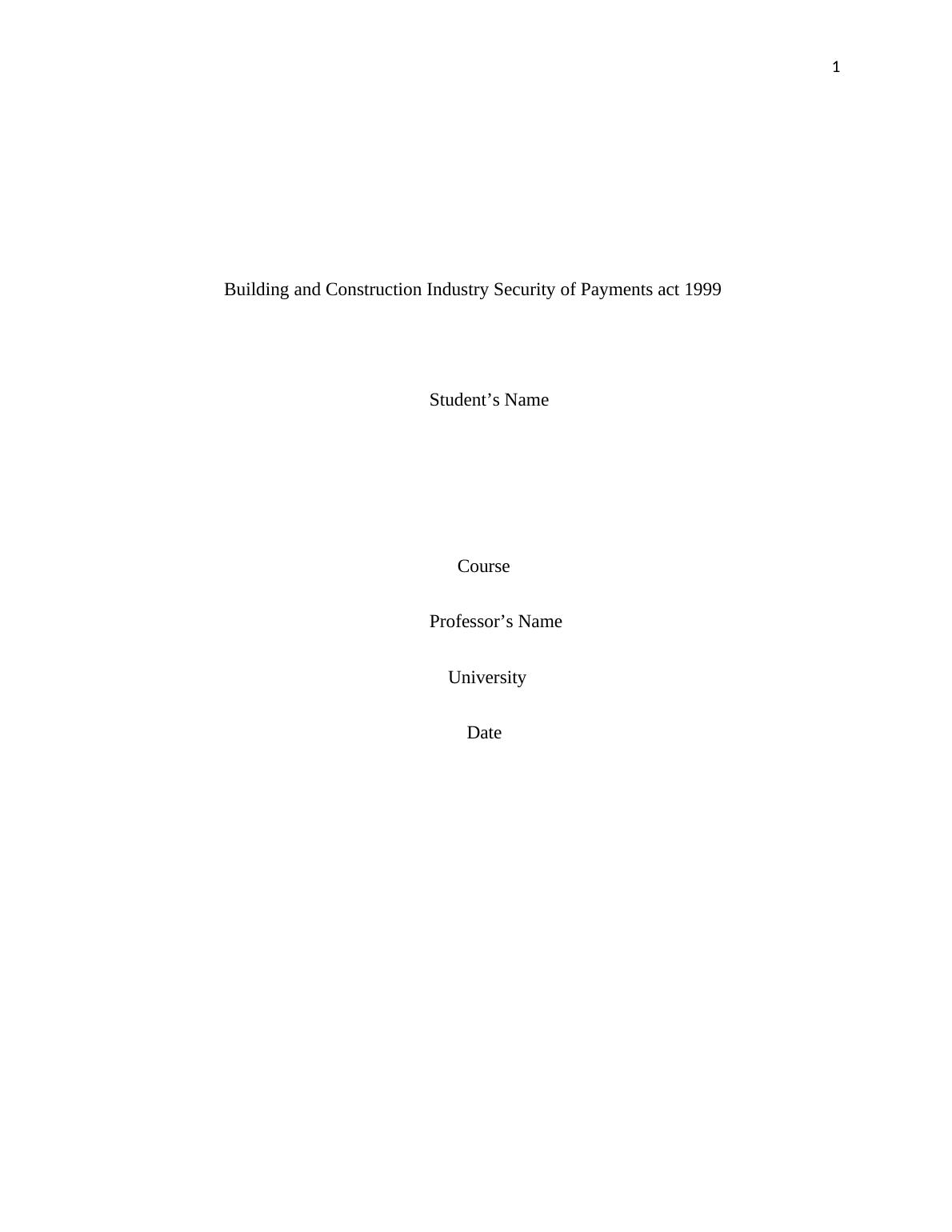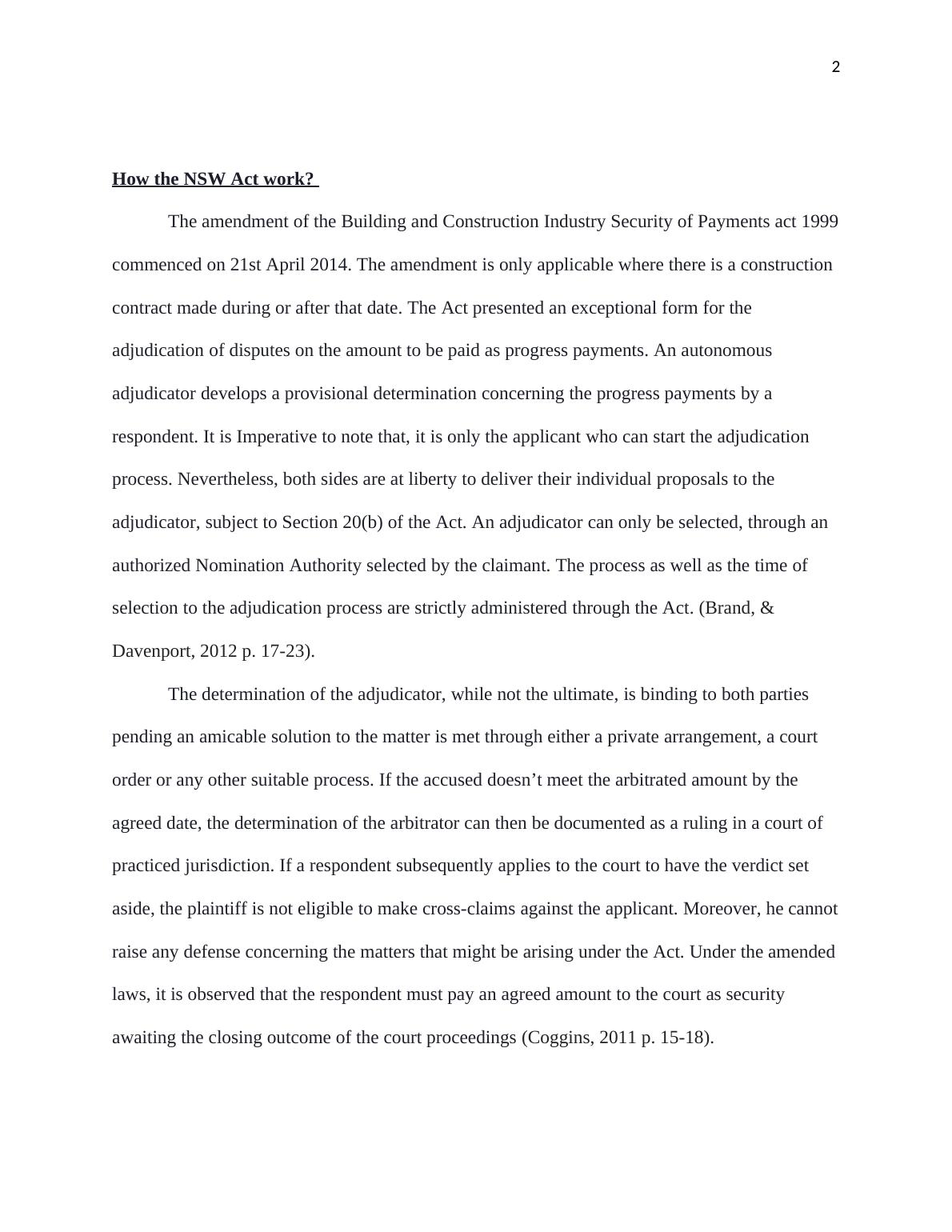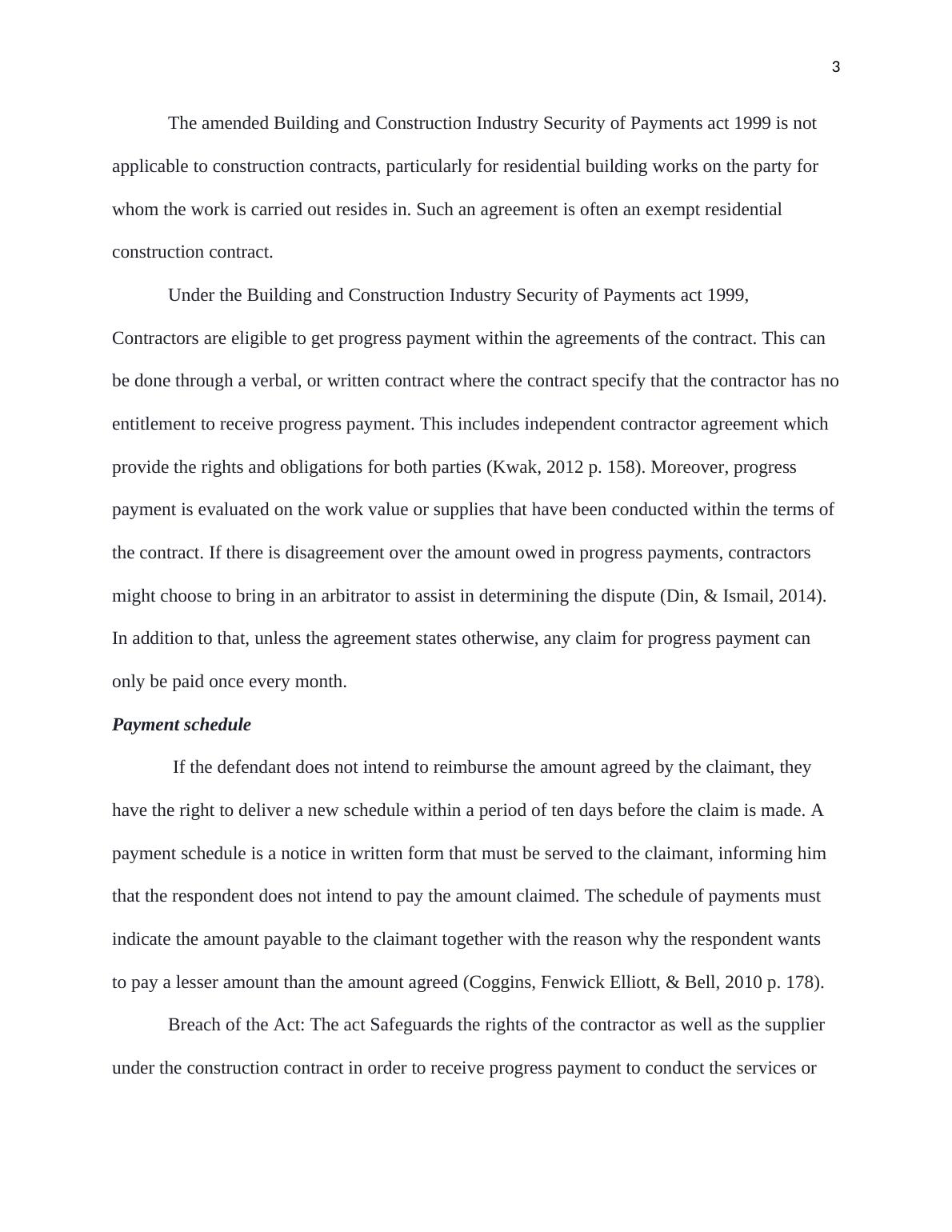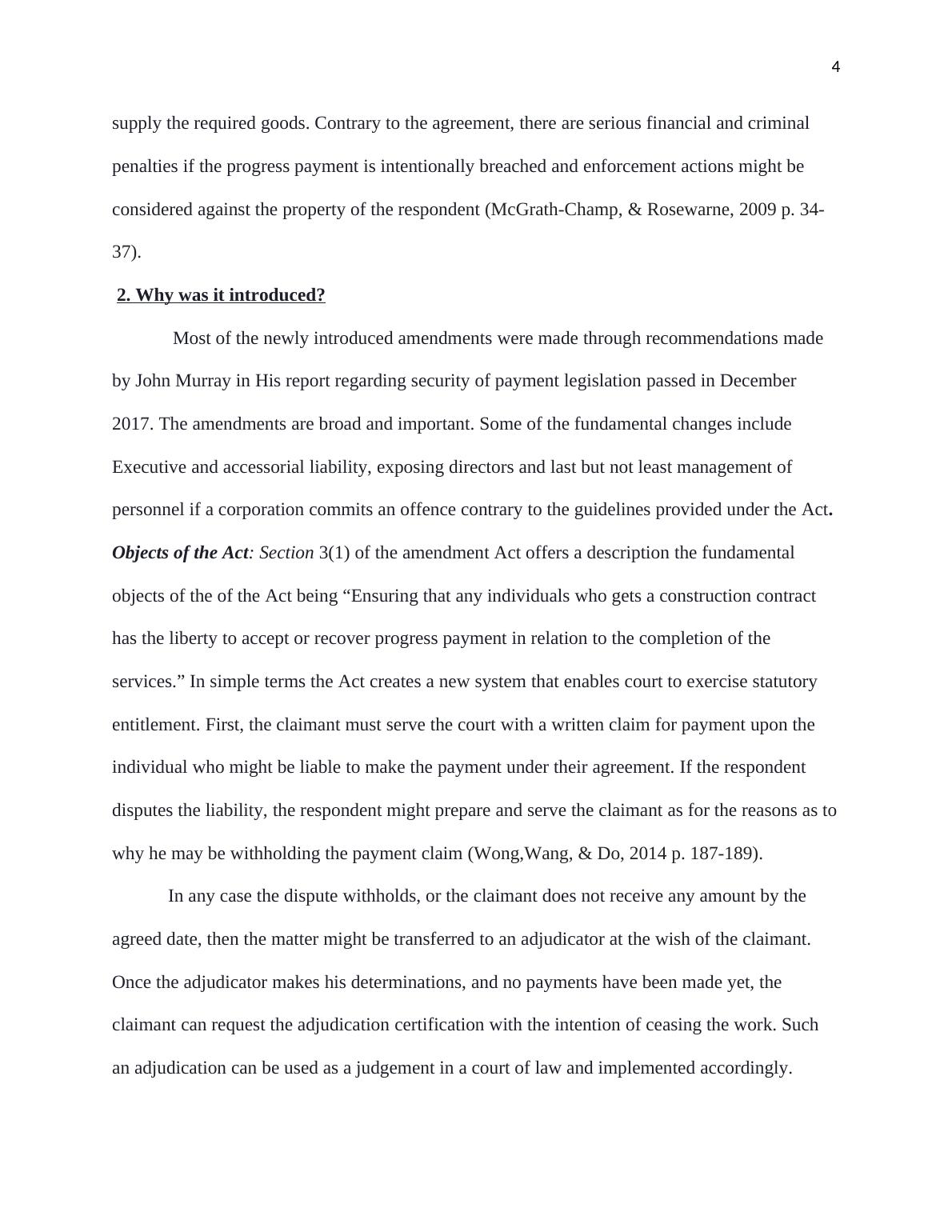Amendment of the Building and Construction Industry Security of Payments Act 1999
13 Pages3704 Words398 Views
Added on 2022-10-19
About This Document
The amended Building and Construction Industry Security of Payments act 1999 is not applicable to construction contracts, particularly for residential building works on the party for whom the work is carried out resides in. Under the Building and Construction Industry Security of Payments act 1999, Contractors are eligible to get progress payment within the agreements of the contract.
Amendment of the Building and Construction Industry Security of Payments Act 1999
Added on 2022-10-19
ShareRelated Documents
End of preview
Want to access all the pages? Upload your documents or become a member.
Building and Construction Industry Security of Payments act 1999
|11
|2892
|126
Building Law: Examining the Building and Construction Industry Security of Payment Act 1999
|9
|2763
|321
Building and Construction Industry Security of Payment Act 1999 No 46
|11
|2373
|374
Building and Construction Industry Security of Payments Act of 1999 as amended
|7
|1516
|266
Security of Payments Act: Business and Construction Industry Security of Payments Act, 1999
|15
|3350
|489
Building and Construction Industry Security of Payment Act 1999 - Desklib
|9
|2434
|155




